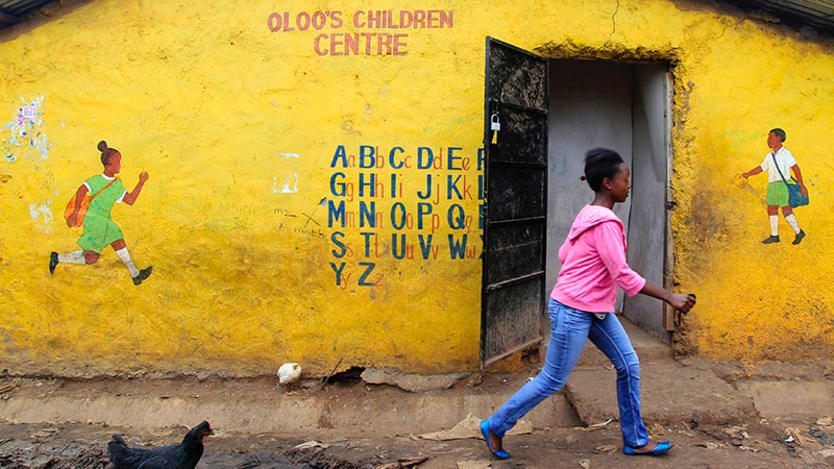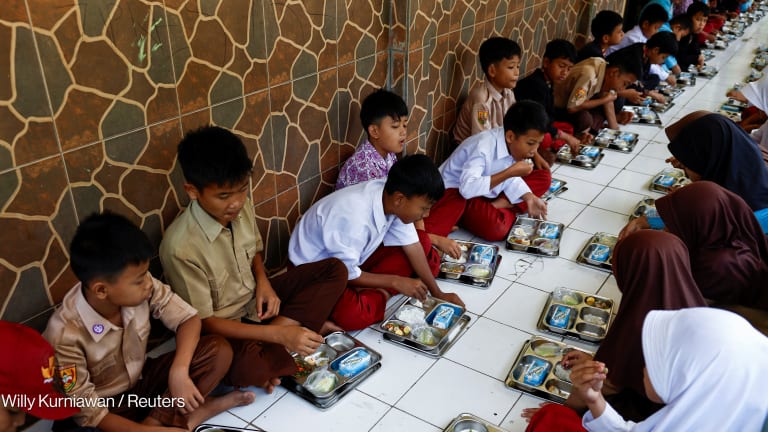
My heart goes out to the families who lost their children in the collapse of the Precious Talent School in Nairobi a few weeks ago. I commend the Kenyan government for taking action to better regulate private schools such as this one, and make sure it will never happen again.
This tragedy has rightly fuelled a debate about a trend we’re seeing in Africa and around the world: the unchecked and unregulated growth of private and commercial schools that are purposed to deliver profits. Bridge International Academies is one example that sparks controversy. In Kenya it’s been reported, for example, that the chain has failed to meet curriculum, teacher certification, and other educational and safety standards [which Bridge denies].
UNESCO issues dire projections for 2030 education targets
"It appears that we’re resigned to failure" on SDG4, Joseph Nhan-O'Reilly, head of education policy and advocacy at Save the Children, tells Devex.
This trend is cause for deep concern, especially as some donor governments are now actively using public aid money to fund for-profit and commercial schools in lower-income countries.
So is the World Bank. While most of the bank’s funding goes to supporting public education, it is also promoting and funding market-oriented public-private partnerships and encouraging countries to incentivize the growth of private education.
In recent years, the bank’s private sector arm, the International Finance Corporation, has quadrupled its funding to for-profit, fee-charging primary and secondary schools. This includes chains such as Bridge, which has become the subject of an official complaint by community members in Kenya to IFC’s accountability mechanism — the Compliance Advisor Ombudsman. CAO has, in fact, just announced it will start a formal investigation into the case.
This debate took center stage as finance ministers and bank governors from around the world descended on Washington, D.C. at the World Bank- IMF Annual Meetings earlier this month. Oxfam — together with 173 civil society organizations from 63 countries — called on all countries, donors, and especially the World Bank, to take a clear position in support of free, publicly provided, quality education and against the use of public funds, including aid, to support for-profit or commercial education.
More opinions on education from Save the Children, ActionAid, and more:
► Opinion: The Global Refugee Forum and the case for education
► Opinion: The World Bank shouldn't be setting global goals for education
► Opinion: The world's children need the UK to honor its leadership legacy
Our message is clear: For-profit schools are not the answer to the challenges in reaching universal education. They exclude the poorest. They increase inequality. They are poorly regulated, unsafe, and are often of very poor educational quality. In Uganda — where I am from — and Kenya, commercial schools have been accused of refusing to comply with minimum government education standards.
Too many parents are bankrupting themselves to get their children into so-called “low-fee private schools,” only to find that they are not receiving the quality instruction they were promised. And these schools disproportionately exclude girls and the poorest children, while often paying poverty wages to under-qualified teachers.
This return to privatization by big donors is a frightening turnaround. Oxfam campaigned for universal free primary education side by side with the bank and many others in the early 2000s. The then-World Bank President James Wolfensohn said, “We fundamentally agree with their call that by the year 2015 free education be a right for all children up to age 15.” Many governments then abolished fees for primary education.
The result? Millions of children got to go to school for the first time — and many of these new students were girls, so the impact on gender inequality was profound.
Today, that argument must be won again. Just think of what kind of society we build when every child gets to go to school, to unlock their potential, with no financial barrier. Universal education ensures our most talented lead us, not just the children of the rich who can buy the best education. It was this kind of public provision that powered the development of advanced economies.
And just think of the society we build in which every girl can go to school — where they aren’t locked out of the classroom because their families are unable to pay.
I believe many poor governments know this. In Africa, we have made huge progress, as Oxfam’s recent commitment to reducing inequality index shows. Significant investments have been made in very poor countries such as Ethiopia, which increased enrolment in schools by 15 million children — especially girls — over 10 years; and Ghana and Sierra Leone, which just last year made education free at secondary level.
Despite the push by powerful backers of privatization, they give us reason to be encouraged.
That’s not all. The European Parliament and the Global Partnership for Education — the biggest global fund for education — recently took a strong stand against using aid to support for-profit education. The U.N. Human Rights Council, African Commission on Human and Peoples’ Rights, and various U.N. treaty bodies have recognized the obligation to progressively secure free public education in fulfilling the right to education.
And I felt greatly encouraged as I met with finance ministers from poor countries who know as much as civil society does about the dangers of privatization — and about the need to resist it to lift their countries out of poverty.
That argument must yet be won, and that is what Oxfam will continue doing in the months ahead. Governments and the World Bank must put their money and stamp of approval behind proven public solutions in delivering education for all, to really give all our kids the opportunity — that is their right — to learn and to thrive.








